Breaking Beta | How Does 30 Years of Climbing Affect Our Shoulders?
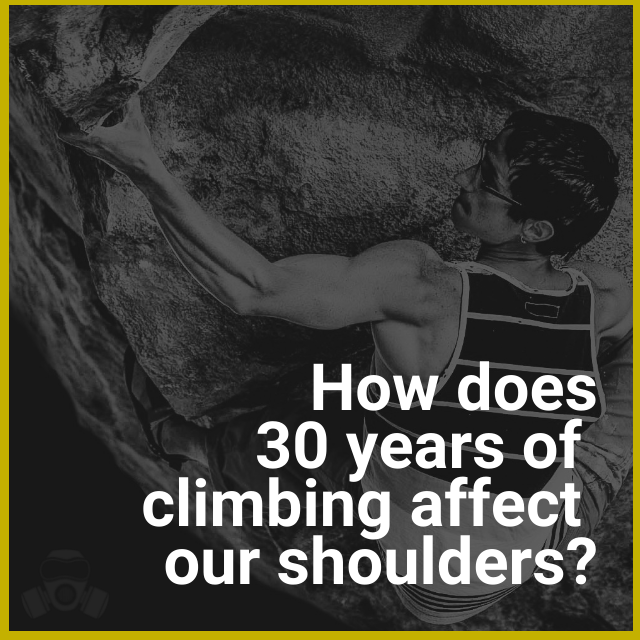
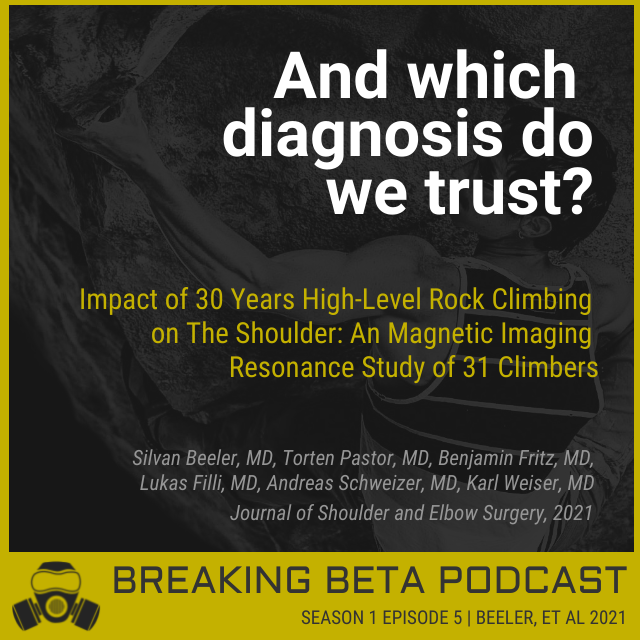
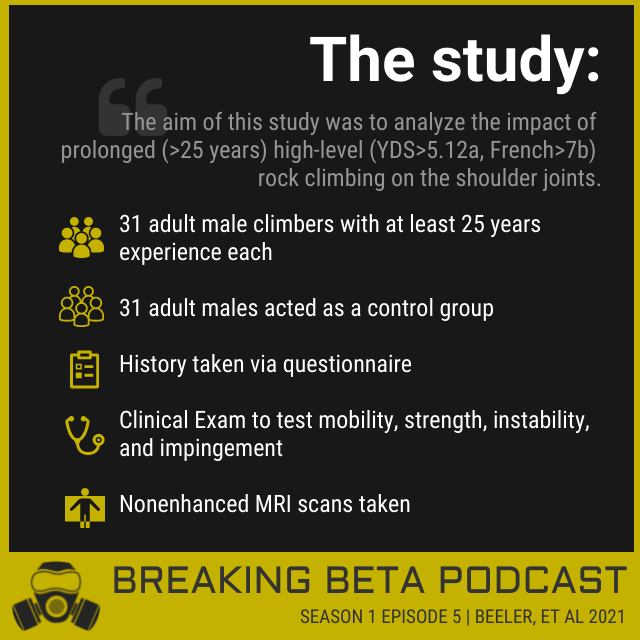
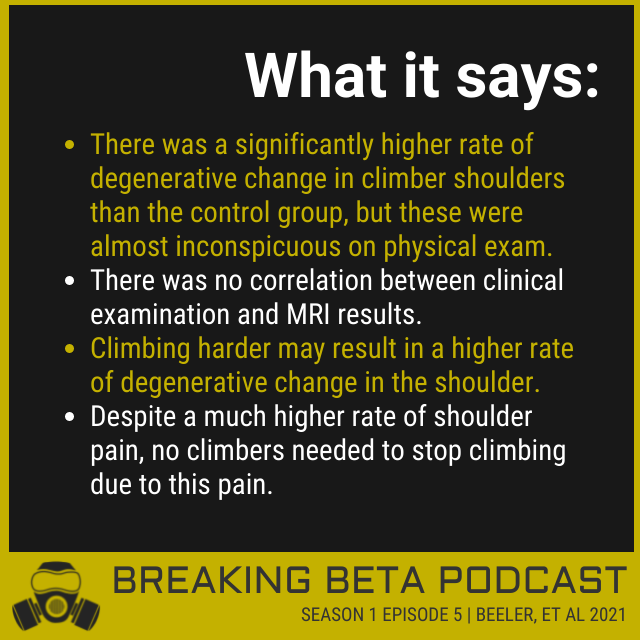
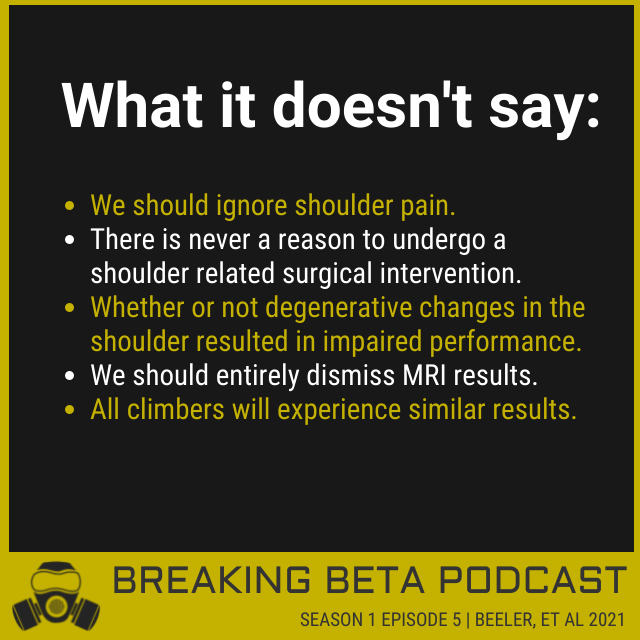
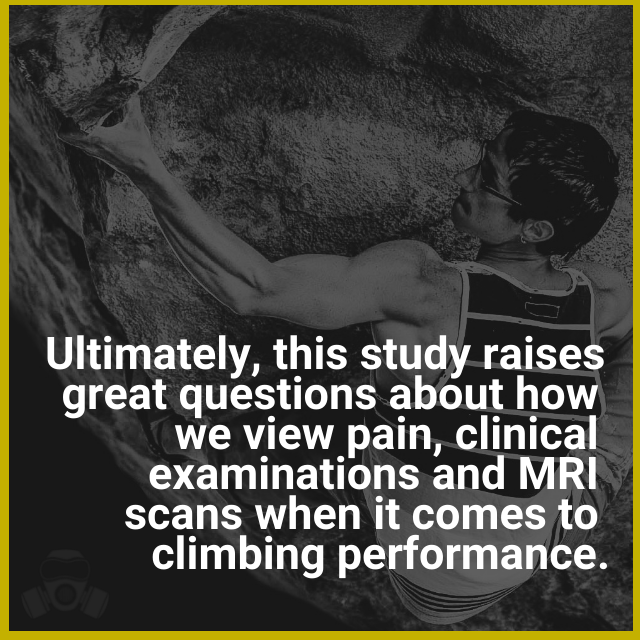

In this episode, Kris and Paul discuss a topic that every climber has to consider during their career - shoulder health - as examined in the study:
Impact of 30 Years High-Level Rock Climbing on the Shoulder: an Magnetic Resonance Imaging Study of 31 Climbers
authored by Silvan Beeler, MD, Torten Pastor, MD, Benjamin Fritz, MD, Lukas Filli, MD, Andreas Schweizer, MD, and Karl Weiser, MD; published in the Journal of Shoulder and Elbow Surgery in 2021.
They’ll attempt to determine whether or not we are truly trashing our shoulders more than others, and if so, what kind of impact this damage could have on our climbing performance. Tune in to find out if every iron-cross move is a potential trip to the operating room, or if there’s a good chance our shoulders just might be able to withstand the wear and tear.
*Additional studies/resources mentioned in this episode:
Physiological Bone Responses in the Fingers After More Than 10 Years of High-Level Sport Climbing: Analysis of Cortical Parameters authored by Frederik Hahn, MD, Matthias Erschbaumer, MD, Philipp Allenspach, MSc, Kaspar Rufibach, PhD, and Andreas Schweizer, MD; published in Wilderness & Environmental Medicine, 2012.
Ep. 153 of the Power Company Climbing Podcast: Pain Science for Climbers with Dr. Natasha Barnes
New episodes of Breaking Beta drop on Wednesdays. Make sure you’re subscribed, leave us a review, and share!
And please tell all of your weak-shouldered friends who insist that every shouldery move is going to result in surgery, that you have the perfect podcast for them.
Got a question? Comments? Want to suggest a paper to be discussed? Get in touch and let us know!
Breaking Beta is brought to you by Power Company Climbing and Crux Conditioning, and is a proud member of the Plug Tone Audio Collective. Find full episode transcripts, citations, and more at our website.
FULL EPISODE TRANSCRIPT:
Breaking Bad Audio Clip 00:05
It doesn't add up.
It adds up perfectly. Walt's a scientist, scientists love lasers.
Kris Hampton 00:11
Scientists love lasers. We haven't done any papers yet on lasers, but maybe we will.
Paul Corsaro 00:20
In the pipeline.
Kris Hampton 00:21
That's about all I can say about that. And I just really wanted a place to use that clip. Alright, today, we are looking at an interesting study that examines the injuries to the shoulder. And honestly, I think it just casts a bit of light on what should maybe be considered more normal for climbers. That's one of the things I found most interesting in this paper. Its title is "Impact of 30 Years High Level Rock Climbing On The Shoulder: A Magnetic Resonance Imaging Study of 31 Climbers". Author is Silvan Beeler, MD et al. The Journal of Shoulder and Elbow Surgery 2021. So a very new study. And I was immediately like, "Oh, impact of 30 years high level rock climbing?", that that to me was like, oh, this isn't a study that was just, you know, they did it in a week and published a paper on it, which I thought was quite cool.
Paul Corsaro 01:30
Yeah. Um, if you look at, I think they said it was a retrospective cohort study, which is a cool little study design where they actually, it was uh... all climbers who participated in a hand study about 10 years ago.
Kris Hampton 01:42
Mm hmm.
Paul Corsaro 01:43
And so that retrospective cohort study, what you do is you look back in time between two groups and see if the risk or if there's an effect that was different between the control and exposed group, so it's less of a them performing an experiment. It's kind of just reviewing in time, like, hey, you did this. This other group did this. Let's see if doing this thing had any changes.
Kris Hampton 02:07
Yeah. Which I which I think is quite cool. The aim of this study, the purpose, was, "to analyze the impact of prolonged, greater than 25 years, high level, and by high level, they mean greater than 12a or 7b rock climbing on the shoulder joints. For this purpose, we compared the clinical examinations and MRI scans of 31 male high level rock climbers, and 31 male nonclimbers." Super interesting. Let's, let's just jump into it.
Breaking Bad Audio Clip 02:40
You clearly don't know who you're talking to, so let me clue you in.
Paul Corsaro 02:44
I'm Paul Corsaro.
Kris Hampton 02:46
I'm Kris Hampton.
Breaking Bad Audio Clip 02:47
Lucky two guys, but just guys, okay?
Paul Corsaro 02:50
And you're listening to Breaking Beta,
Kris Hampton 02:53
Where we explore and explain the science of climbing
Breaking Bad Audio Clip 02:57
With our skills, you'll earn more you ever would on your own.
Breaking Bad Audio Clip 03:02
We've got work to do. Are you ready?
Paul Corsaro 03:07
I'm ready, are you?
Kris Hampton 03:09
You know what, I'm I'm actually extra ready for this. I came into climbing with ridiculously strong shoulders from being a gymnast and, and I think I've probably let that go a little bit. So this study, the study was actually really fun to read. Let's look at the methods.
Paul Corsaro 03:27
One of your shoulders did explode, right?
Kris Hampton 03:28
One of my shoulders did explode. I worked as an overhead worker for many years, laborer, and that that 100% contributed to it. And we'll talk about that a little bit in here. But let's look at the methods of this study, which we've already talked about a little bit, but let's go a little more in depth.
Breaking Bad Audio Clip 03:49
In a scenario like this, I don't suppose it is bad form to just flip a coin.
Kris Hampton 03:57
And like some of the best studies out there, they aren't just flipping a coin here. I think it's it's quite well set up. They have 31 adult male climbers, that's a problem. There's no no women in this study at all.
Paul Corsaro 04:13
I think they mentioned that later on, though, too, in their discussion. So we'll get into that.
Kris Hampton 04:18
They do and something you said in a prior episode of this podcast is that as as we get later and later, more studies are including women, like the science scientific community recognized that this was a problem and they're making an effort to include women in their research. And like you said at the beginning of this, this was a study done on a group many years earlier, so
Paul Corsaro 04:46
So they didn't select the participants for this paper. It was used from a previous study.
Kris Hampton 04:51
Right. Something else I found really interesting here is that they they looked at the lifetime best grade that these climbers had climbed, and it ranged from 12a to 15a, so we've got some really high level climbers in here. And they also looked at what are you climbing now, because they're looking at such a wide span of time. And the current grade going into this is anywhere from 10c to 14d. So still a huge range, and still after, you know, 25 years experience, so there are some older climbers in here. Some of them are still climbing really hard.
Paul Corsaro 05:33
Absolutely. And I think out of these 31 people, too, they also found 31 independent non climbers and did match them, age and sex.
Kris Hampton 05:41
Yeah,
Paul Corsaro 05:42
So that gave us a really good comparison as we move further through some of these findings. So they did a good job finding any differences that may exist between people who have been climbing for a long time, and people who have never rock climbed and looking at their structure and shoulder issues and shoulder health and such.
Kris Hampton 05:59
Yeah, and for that control group, they excluded anybody who was an overhead or throwing athlete, and then people with a history of shoulder surgery or injuries were also excluded. So they tried to look at sort of a general population of people to control against the climbing group.
Paul Corsaro 06:16
Yeah, that was a really good choice to throw that criteria in there.
Kris Hampton 06:20
Yeah, super smart. So first, they took kind of a history of how their shoulder had felt via questionnaire. They did a clinical exam, to test the mobility, instability, impingement, and bicep abnormalities, which is, I mean, I've been through this and it sort of sounds like the thing any doctor would do when you go see them to talk about a shoulder injury you've had. It sounded like the same tests. And then they did non enhanced MRI scans on both shoulders of the climbers and the dominant shoulder of the non climbers. I thought that was curious. Why not do it, why not do both on the non climbers while you're in there doing it? But you know, I'm sure these MRIs cost a fair amount of money to do and, you know, they're just going to look at the shoulder of the non climber that is getting used more often.
Paul Corsaro 07:16
And I could hypothesize that, you know, climbers are using both of their arms, in a very intense and dexterity requi...requir... requiring way.
Kris Hampton 07:27
You're having trouble with words today on these podcasts haha.
Paul Corsaro 07:31
And maybe someone who's not performing an overhead sport, or just as a non climber, maybe that non dominant arm isn't being used in as required of ways. So maybe they just thought they could save some time or funds or just didn't think it was important.
Paul Corsaro 07:31
Haha I don't know what the deal is.
Kris Hampton 07:32
Haha
Kris Hampton 07:48
Yeah, I do think it would have been interesting to see, you know, the non dominant arm of the of the non climbers compared to the non dominant arm of the of the climbers, just to see what is actually the difference in the abnormalities that are showing up between our shoulders.
Paul Corsaro 08:09
I agree.
Kris Hampton 08:10
I think it would be interesting, but doesn't necessarily matter for the sake of this study.
Paul Corsaro 08:15
Yeah.
Kris Hampton 08:17
Anything else from you on the methods? This one seemed pretty cut and dry to me. Do several, you know, several checks on how the shoulders are doing and that's pretty much it.
Paul Corsaro 08:28
Pretty simple. I know, you'll see some things floating around the internet these days about how certain PT tests that, they went through this battery of all those tests, certain ones aren't great, some aren't reliable, so on and so forth. I think the fact is that they did something and they kept it with one examiner, so as long as it's reliable within this study, I think that's good enough. I think if they had different people doing a bunch of different tests, those are always gonna be a little bit different for everyone. Those tests are always a little dirty. You never really know what's going on inside.
Kris Hampton 09:00
Right, right.
Paul Corsaro 09:01
But they had same person doing it. It's a good baseline, I think arguments saying that, "Oh, this test isn't that great, actually," I think for this purposes, I think everything was great there. It just gives us more a window into shoulder function and how it feels.
Kris Hampton 09:15
Yeah, one of the things in the questionnaire that I found really interesting and, and it piqued my interest immediately, so I went and looked at it. And it threw up a red flag for me, which ultimately didn't end up mattering, but I just want to point it out here, is that they asked how... like how satisfied they were with their shoulder function. And it was on a scale of zero to three, with zero being poor, three being excellent. And in the chart, where they show what everyone posted, everyone put four apparently, even though four wasn't a choice So I'm assuming everyone just started thinking that their shoulder was in excellent shape at the time of the exam and they just got this number wrong. But I was like, wait, what does this mean? It's not computing that four was not a choice.
Paul Corsaro 10:15
I guess that maybe four means three, because you know, you've got.... I don't know, actually, that is interesting.
Breaking Bad Audio Clip 10:23
Oh hey guys, you forgot something!
Kris Hampton 10:27
Yeah, I'm making the same assumption. Lana and I talked about it quite a bit yesterday and Lana also making the same assumptions, so scientifically, it's got to be correct. All right, let's take a quick commercial break and we will be right back.
Breaking Bad Audio Clip 10:43
Please. Alright, I really need a break here. Okay.
Lana Stigura 10:48
Hey, there. It's Lana again. Since we've already established that you're of the super nerd variety, who's actually listening to Kris and Paul talk about science stuff, we've got something else we think you'll geek out about. Our new Community Forum and Knowledge Hub is an online meeting place for climbers and nerds like you. From community to training talk, philosophy, to yes, of course, even more science, you dweebs!
Breaking Bad Audio Clip 11:09
Yeah science!
Lana Stigura 11:10
Did we mention, it's not on Facebook anymore, so you can avoid the social media doom scroll and your aunt's nonstop posting of pictures of her Dachshunds. Okay, but I actually love seeing those photos, so keep it up, Aunt Brenda. Those Hallo-Wiener costumes were on point. Plus, if you have any questions or want to suggest a paper for Kris and Paul to discuss - looking at you again, nerd cadets - it's the perfect place to get in touch with us. Okay, so you can find the forum at community.powercompanyclimbing.com. Or just follow the link in your show notes. See you there, nerds!
Breaking Bad Audio Clip 11:40
Let's all get back to work for Christ's sake, okay!
Kris Hampton 11:43
Alright, we are back from our break, our commercial break. And like the commercial says, you should definitely check out our community page and talk to us over there, especially if you have any questions, any papers you would like for us to look at. Definitely hit us up over there. Alright, let's look at the results of this paper on climber shoulders.
Kris Hampton 11:43
We're not here to sit in judgment.
Breaking Bad Audio Clip 12:11
Why not? The thing is, if you just do stuff, and nothing happens, what's it all mean? Whatever, whatever you think supposed to happen, I'm telling you the exact reverse opposite of that is gonna happen.
Kris Hampton 12:30
All right results here. The number one thing that stood out for me is that they found no correlation between the clinical examinations and the MRI pathologies. So saying, what we find when we're looking at the shoulder doing all these tests for strength and for mobility, right there in the office, that's not necessarily telling us much of anything about what's going to show up on the MRI.
Paul Corsaro 12:59
I will say that when we're looking at the MRI and shoulder pain, they did say climbers, were significantly had more pain and more pathologies in there. So you know, things are getting stressed a little more. But yeah, if you're having pain in these tests, it may not be reflected in the MRI. But you know, having more pain and structural stuff going on with climbers, that makes sense. We use our shoulders and arms in a very intense way a lot of times and people who've been climbing for a long time are more likely to push through things and try very hard and that could lead to things as well.
Kris Hampton 13:38
Yeah, it said 77% reported shoulder pain at some point in the past, of the climbers. And, and that, like you said, that makes total sense.
Kris Hampton 13:49
But they also said no one had to quit climbing due to the pain and pain is a really complicated thing. I had a an interview with Dr. Natasha Barnes on The Power Company Podcast. We talked a lot about pain. Really great episode. I think it's actually in our Top 10 All-time now. I think it just edged in recently. So congrats to Natasha on edging into that esteemed group. And but I think pain is this interesting thing that's really difficult to talk about. And this study brought up a lot of questions for me about pain, about injury, and about what... you know...how we define those things.
Paul Corsaro 13:49
100%
Paul Corsaro 14:34
Yeah, I think it's important to be aware of it but it's definitely not the signal to stop or I think really if you have pain you need to see somene with doctor in front of their name. That's kind of rule number one before you make any calls that could lead to either increasing the pain or choosing the path to make things go the way you want it to go. But pain is
Kris Hampton 15:00
You don't just go on Reddit and ask?
Paul Corsaro 15:02
I mean, you'll get a lot of answers that way.
Breaking Bad Audio Clip 15:04
Okay, but say, you know, just for the sake of argument,
Kris Hampton 15:08
Yeah, I, if you're feeling pain, if it's a consistent thing, definitely talk to somebody. They're quite a few climbing-specific PTs and doctors out there now that are really good people that you can go see and I think they all pretty much do remote consultations now. Something in here that I thought was super interesting is that all climbers had at least eight of the possible 20 abnormalities on their MRI scans. So every single climber, the the person who's currently climbing 10c and the person who's currently climbing 14d, had at least eight of those 20 abnormalities. But only 10 of the 62 shoulders they looked at were symptomatic at the time of the exam. So that's saying, we can have a lot of things that are going to show up on MRIs as "wrong" or as "abnormalities" or as "degenerative". Air quotes around all of those words. But that doesn't mean they're going to be symptoms of something catastrophic that's happening with their shoulder.
Paul Corsaro 16:21
They even state that in the paper.They say conclusions based on only MRI findings should be made cautiously to avoid surgical overtreatment in these heavily used shoulders.
Kris Hampton 16:31
Yeah.
Paul Corsaro 16:31
If all you're getting is an MRI and things immediately go to surgery, might be useful to look around and see what other clinicians think as well.
Kris Hampton 16:40
Yeah, totally. And, you know, they used, one of the scores they use to score the shoulder in the clinical examination was the constant score. And the climbers in this study had significantly more and the word they use is "degenerative". I know that Natasha doesn't like that word degenerative and I understand why. It's got a negative connotation to it. It's really, in this case, it's signs of the way in which you're using your shoulder, you know. Doesn't necessarily mean it's bad, but it is a change. But they had significantly more change and shoulder pain and these were inconspicuous on the physical exam. And that statement, I found really interesting, because when I went to see the doctor about my shoulder after I had overuse injury for a long time that I had dealt with. I dealt with pain for many years. I continued to climb harder and harder and harder and had one traumatic event that was preceded by a lot of overuse at work. I was working overhead for, I don't know, eight weeks in a row, something like that, pushing really hard overhead all day, every day. And then was spotting my wife at the gym, and just on... she fell off the start move of a boulder and when she tapped my hand, I felt my shoulder just release. And my daughter went with me to the doctor to see what was going on and I told her, "We're going to go in there. He's going to test my mobility. He's going to test my strength and he's going to say there's nothing wrong because I've I've spent 20 years at this point, compensating for pain and injury and weakness. And I'm really good at being strong. I'm really good at dealing with the pain. And he's going to be asking about those things and he's gonna say up no big deal. But I can tell my shoulders totally fucked, you know." And that's exactly what happened. And he was doing the same tests they do to get that constant score. And the constant score was higher for the climbers than the control group, but the control group showed fewer abnormalities. So I had to demand that I get scans for him to look at my shoulder. And I think that's a that's an important thing to mention here too. It's not just if there's pain, you should ignore it. But if there's if you really believe something's wrong, and the doctor is saying, "Oh, your constant score is fine, nothing's wrong", then you should push for what you want to look at
Paul Corsaro 19:31
Yeah. 100% I think this is a study that really has a lot of nuance to it, the more you look at it.
Kris Hampton 19:37
Yeah, it really does.
Paul Corsaro 19:38
It shows you know, yes, we use our shoulders a lot as rock climbers for a long time. And yes, people, their shoulders hurt more, if you've climbed for a long time. That doesn't necessarily mean you know, there's something physically wrong that you need to fix and go in and fix surgically, but it doesn't mean you can just blanketly ignore that shoulder pain and just try and train through it all the time, too. You really need to take your time and be very aware and careful with how you go about it. It's really going to be on a case by case basis. Consult experts who perform your activity, so they're familiar with the patterns of climbing, and really rely on their expertise and their time doing it.
Kris Hampton 20:24
Yeah. And don't just jump straight to the surgical intervention because your friend told you that's probably what you need, you know, because they had a surgery. Certainly, you know, I had a surgery for my right shoulder and my my results were great. But I'm not going to just recommend surgery wildly for someone when I'm not a doctor. I don't know what's going on. I'm not seeing their scans, you know. You know as well as anyone else does what your shoulder needs.
Paul Corsaro 20:58
Yeah.
Kris Hampton 20:58
All right. What this paper doesn't say. What are some of the, the misinterpretations we are likely to hear from this paper?
Breaking Bad Audio Clip 21:09
What is close? There's no close in science, Barry. There are right answers and wrong answers.
Breaking Bad Audio Clip 21:16
Yeah, but I'm just saying, Mr. White.
Kris Hampton 21:19
I think the number one thing it doesn't say is that we should just ignore pain.
Paul Corsaro 21:25
Yep, agreed 100%. Odds are your shoulder is going to hurt at some point. It doesn't mean that pain is always all in your brain and that there's nothing structurally wrong. You just need to take a closer look at it and think critically about it.
Kris Hampton 21:40
Yeah, it also doesn't say that we should just ignore what the MRI shows. You know, there there may be a significant structural issue that that needs close attention. It's not... it's saying that the MRI doesn't correlate well to, to a lot of what we feel, but it's not saying we should ignore it.
Paul Corsaro 22:04
Yeah, it says, yeah, don't.....based on only MRI findings should be cautiously. So maybe an MRI is a great piece of information to be used in concert with other things.
Kris Hampton 22:15
Yeah.
Paul Corsaro 22:15
Not just that.
Kris Hampton 22:16
Yep.
Paul Corsaro 22:17
It doesn't...yeah, it doesn't say ignore the MRI.
Kris Hampton 22:19
Anything else you're seeing that it doesn't say?
Paul Corsaro 22:23
Um... not off the top of my head. I think we we kind of covered all of that.
Kris Hampton 22:29
Yeah. Yeah, one thing we already covered that it doesn't say is that it's not saying we never need surgery. Sometimes surgery is going to be appropriate. A lot of times it's not. Jumping straight to that conclusion isn't the way to go, but sometimes it might be the way to go.
Paul Corsaro 22:47
Yeah, I agree with that.
Kris Hampton 22:49
For me, overall, this was a good study with interesting findings. You know, we we knew a lot of this already, that the MRI scans, you know, don't really correlate well to how we feel and what the symptoms are. We've seen that in other studies with overhead and throwing athletes, but it is really good to see it specifically with climbers.
Paul Corsaro 23:13
Yes, I think as a strength coach, it really highlights the importance of undergoing a intelligent and effective exercise routine to really make sure your shoulders are strong and resilient, because you're going to challenge them with rock climbing. And the more you can make them handle those stresses, the longer and better, you're going to feel climbing.
Kris Hampton 23:36
Yep, totally. And with that, let's jump into the application.
Breaking Bad Audio Clip 23:40
I got all these little pieces. They're all part of the story, right? But they don't mean much on their own. But when you start telling me what you know, we start filling in the gaps. I'll have them in lockup, before the sun goes down.
Kris Hampton 23:51
For me, this paper raises lots of questions, questions about how to deal with pain, how to discuss pain, how to define injury, and what that what that means and what its connotation is. It asks us to reprioritize what we see on the MRI scans versus what the symptoms are and I think that's a good thing. You know, I don't think we should just be blindly following any of these paths without looking at all the others.
Paul Corsaro 24:25
Yeah, yeah, there's no like one deciding factor for the, the path you need to take. You need to take it all into account and use all those data points to make your decision.
Kris Hampton 24:37
Yeah, and I think, you know, we're, we're both coaches. We've both worked with a lot of athletes. We've both heard a lot of times, "Oh, my shoulder hurts" or, you know, "This is bothering my shoulder" and I think it's important as coaches to let people know that no matter what that injury is saying or what that signal is saying, you can still continue climbing hard. You know, if you need time away, you can come back climbing hard. The people in this study continued to climb at a relatively high level, despite the prevalence of shoulder pain and abnormalities in their scans, and, you know, they all had experienced some sort of shoulder pain in the past, essentially.
Paul Corsaro 25:27
Yeah, so you may have that happen in your climbing career and as long as you're just considerate about how you go about it, it doesn't mean you need to stop climbing. I recommend either if you're a coach out there, build a relationship with a clinician who understands the sport of climbing. That way, you can kind of work together with athletes who may experience significant pain. I think that's really good to keep people moving on the same path and feel empowered and not like the sky is falling, and they're never going to rock climb. Again, it's important as a coach who's not a clinician to stay within your scope, too. So if things seem pretty significant, you need to refer out and a lot of times people send people to a clinician who has never even heard of rock climbing and their response can be just stopped climbing.
Kris Hampton 26:10
Yeah.
Paul Corsaro 26:11
That's not a helpful answer. So reach out, there's plenty. And we've mentioned these clinicians in this podcast. Reach out to those people, talk to them build a network. And if you're an athlete who has significant pain, you know where to find them as well. That's a great... those people are a great resource for moving forward and dealing with the things that pop up in a career of climbing.
Kris Hampton 26:33
Yeah, absolutely. I mean, going to a general, a general doctor, who deals with the general population, you know, I think this paper does a great job of highlighting the fact that climbers are going to show up with lots more shoulder abnormalities. And by abnormality, I mean, exactly that. It's versus a "normal" population, normal air quotes. Our shoulders are going to look different, so you should be going to a doctor that understands the demands that climbing puts on your shoulder. Another thing, for me the application of this is, and I sort of started this episode with this, we should continue strengthening the shoulder you know, no matter where you came in at or how your shoulders feel. If you've never injured your shoulder, you've been careful, so what? You should keep strengthening it. Why not? It's a you know, all all of our climbing revolves around how we move between our shoulders, so let's just keep working on making the shoulder stronger.
Paul Corsaro 27:46
Yeah, find a routine that's sustainable for you, something you enjoy and something you can continue, always overloading in a responsible way. And you're going to make those shoulders more and more resilient and you'll probably perform better too. You know, we don't just need shoulders that don't hurt. We need strong shoulders.
Kris Hampton 27:59
Yeah, totally. Anything else from you on this? I felt like this was just really solid and a great way to look at this topic.
Paul Corsaro 28:11
Yep, I'm with you on that. I think we kind of covered everything.
Kris Hampton 28:15
Yeah, I have to give it one of these just for that sake.
Breaking Bad Audio Clip 28:18
Yeah, science!
Breaking Bad Audio Clip 28:22
Booyah! Woo!
Kris Hampton 28:23
That's how I feel about this paper. All right, you can find both Paul and I all over the interwebs by following the links right there in your show notes. You can find Paul at his gym Crux Conditioning in Chattanooga. Chattanooga's premier climbing training space. And if you have questions, comments or papers that you'd like for us to take a look at, hit us up at community.powercompanyclimbing.com. Please do that. We want to know what you want to hear in Season Two, so check us out over there. Don't forget to subscribe to the show. Leave us a review and please tell all of your weak shouldered friends who insist that every shouldery move is going to result in surgery, that you have the perfect podcast for them. And we'll see you next week when we discuss tendon rehab and whether or not your tendon tweaks mean you should just resign yourself to the couch.
Breaking Bad Audio Clip 29:15
It's done.
Breaking Bad Audio Clip 29:17
You keep saying that and it's bullshit every time. Always. You know what? I'm done. Okay, you and I, we're done.
Kris Hampton 29:28
Breaking Beta is brought to you by Power Company Climbing and Crux Conditioning, and as a proud member of the Plug Tone Audio Collective. For transcripts, citations and more visit powercompanyclimbing.com/breakingbeta.
Breaking Bad Audio Clip 29:41
Let's not get lost in the who what and whens. The point is we did our due diligence.
Kris Hampton 29:47
Our music, including our theme song "Tumbleweed", is from legendary South Dakota band Rifflord.
Breaking Bad Audio Clip 29:54
This is it. This is how it ends.




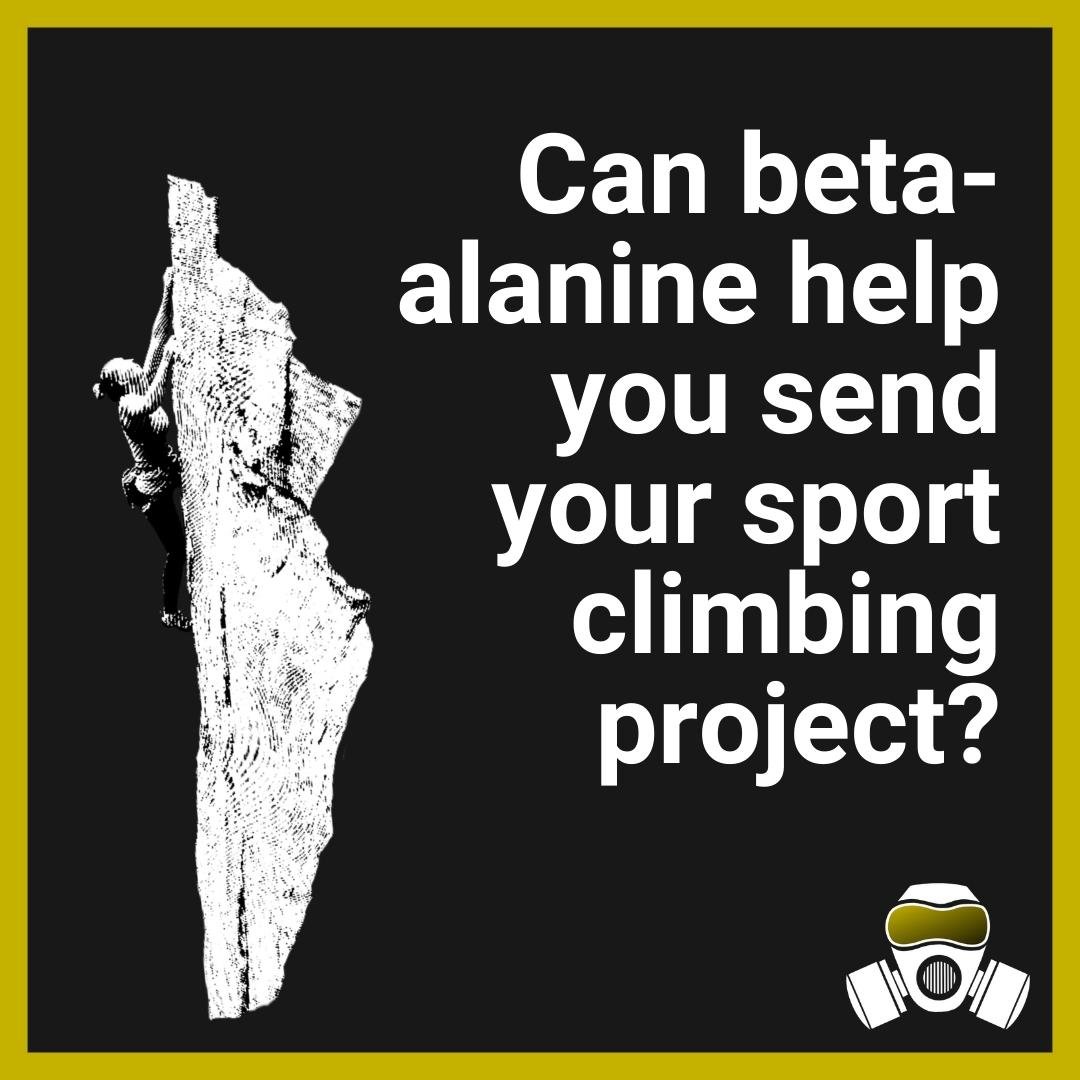

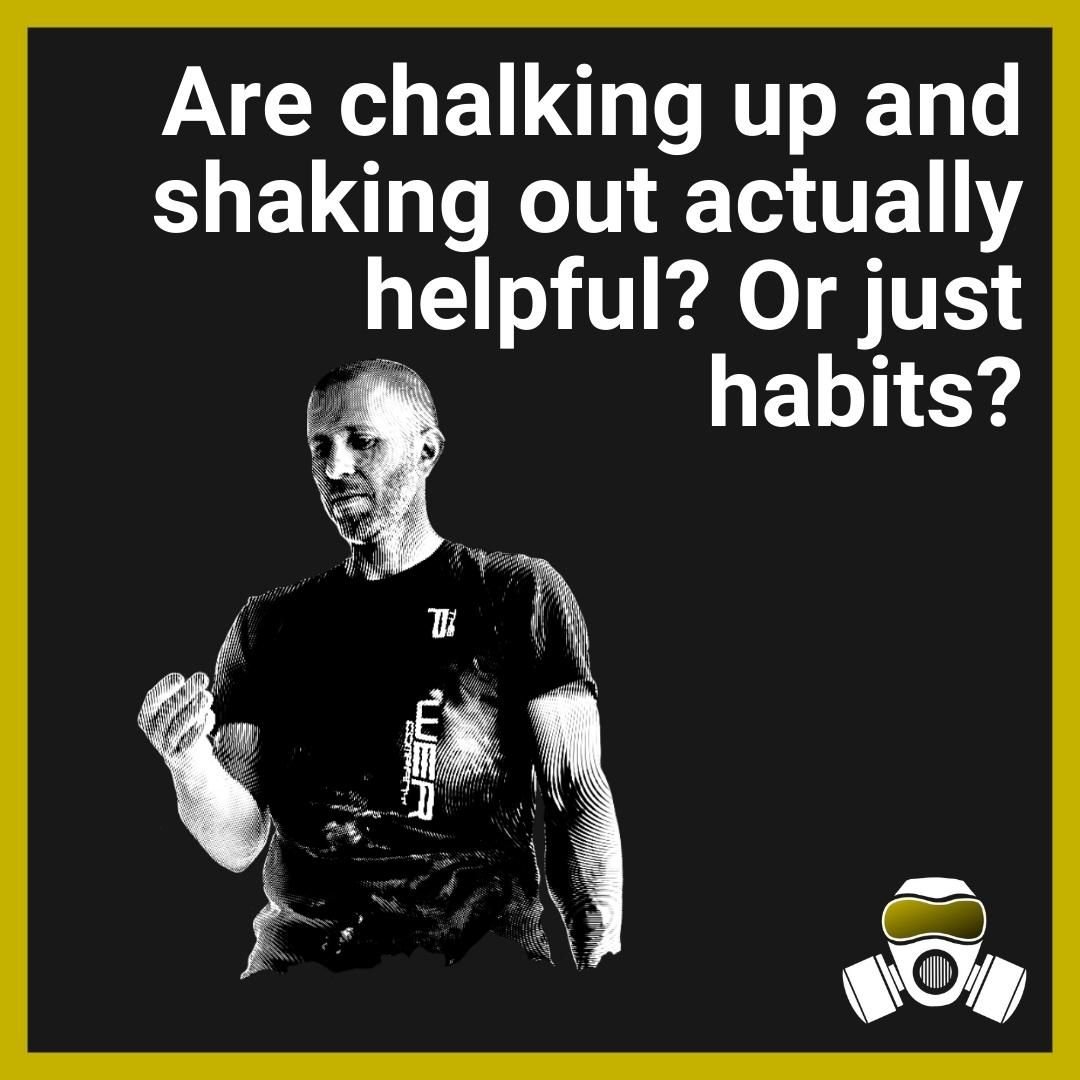

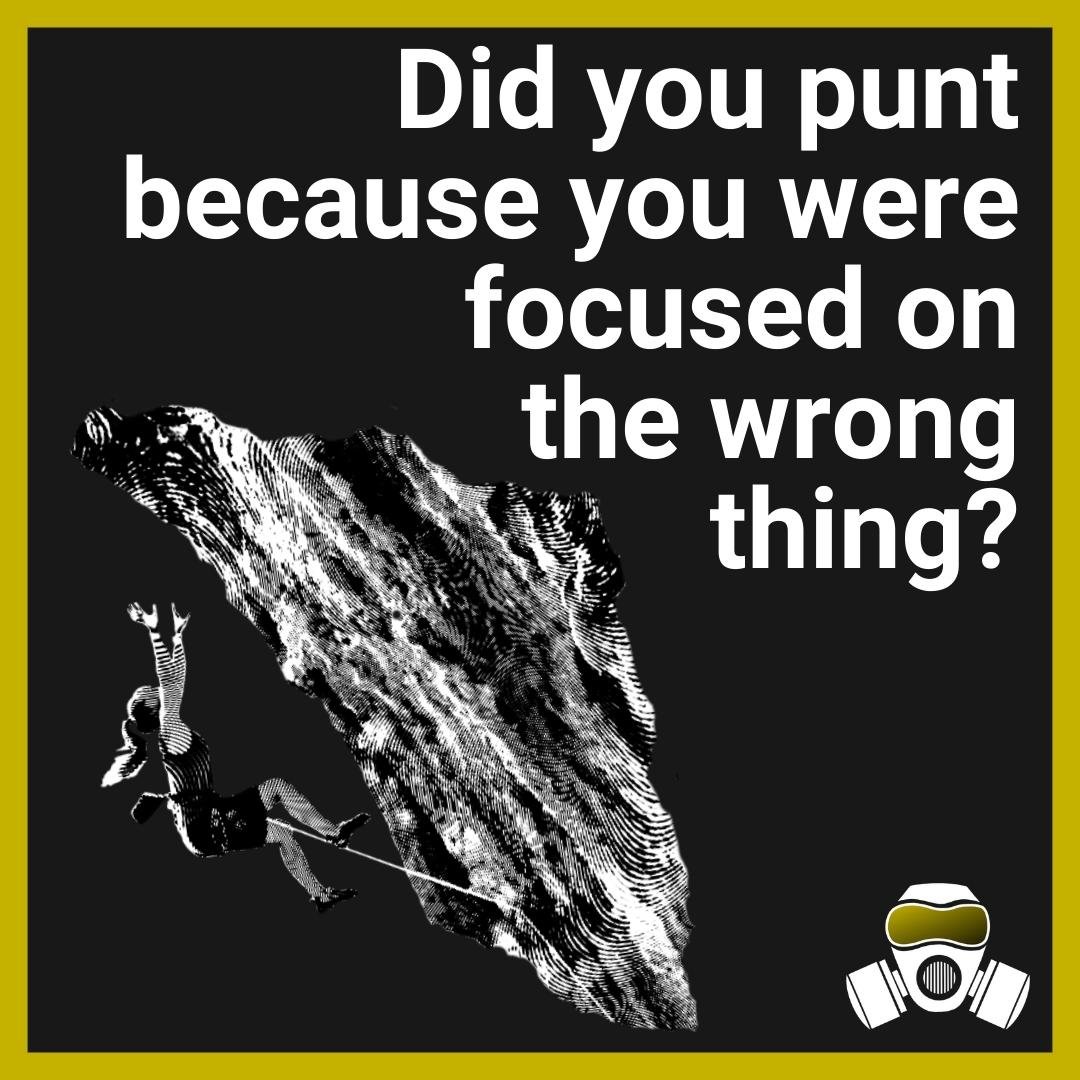


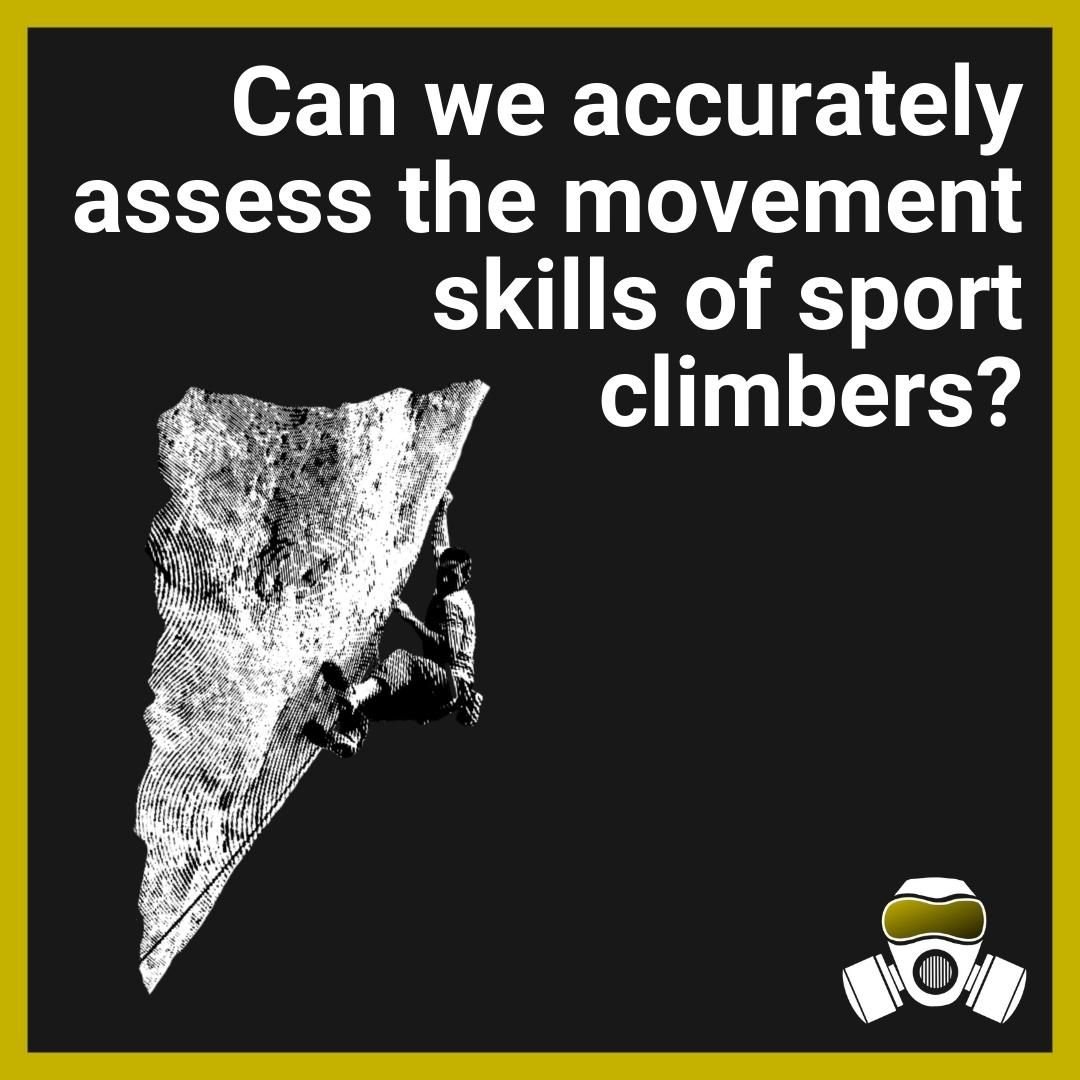
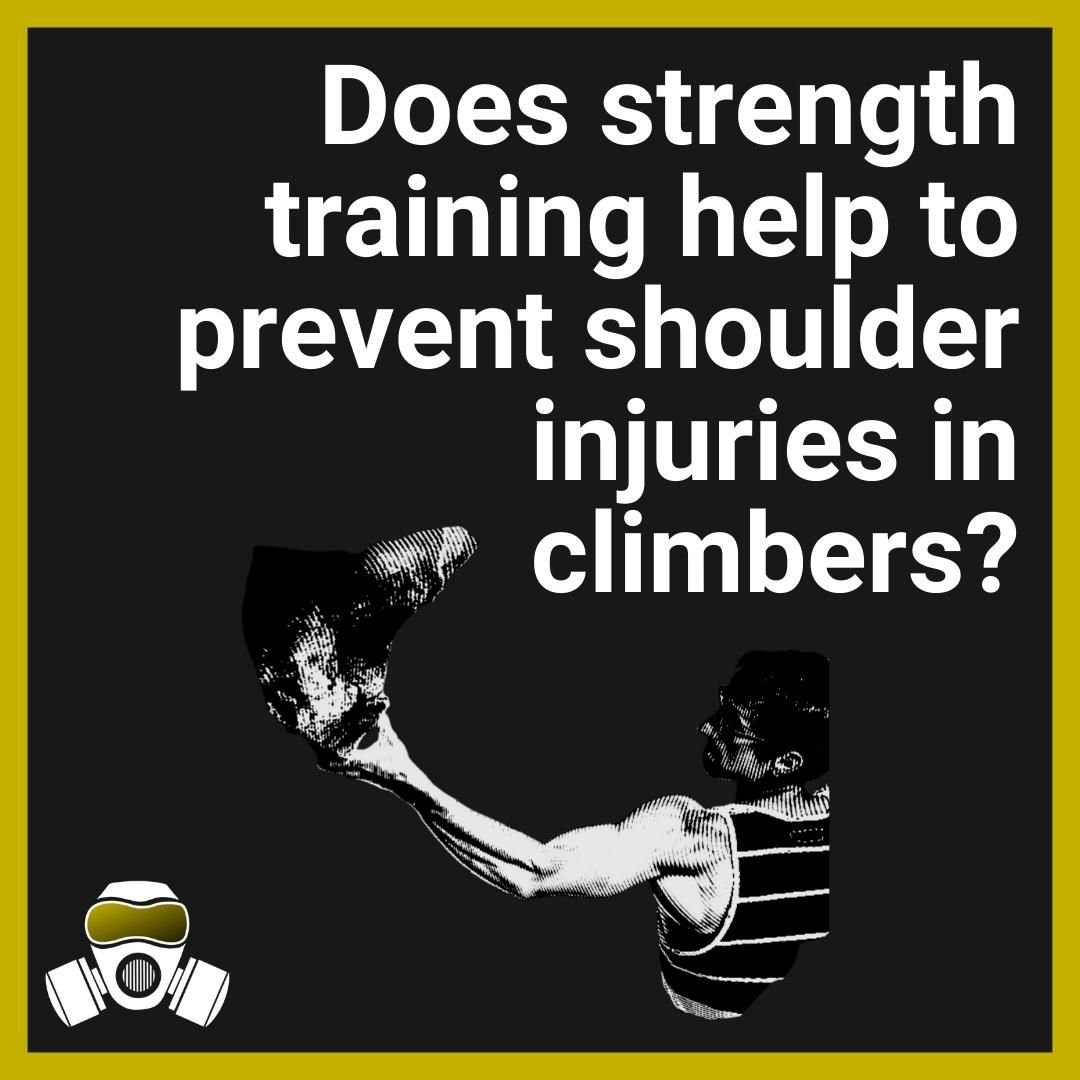








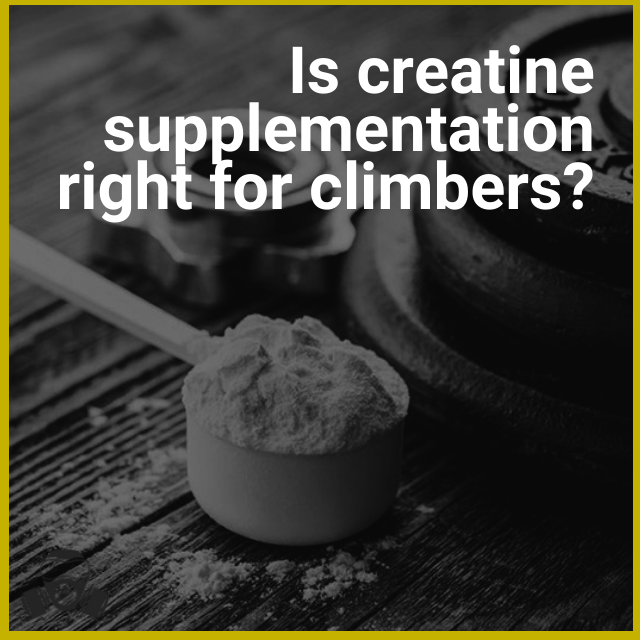
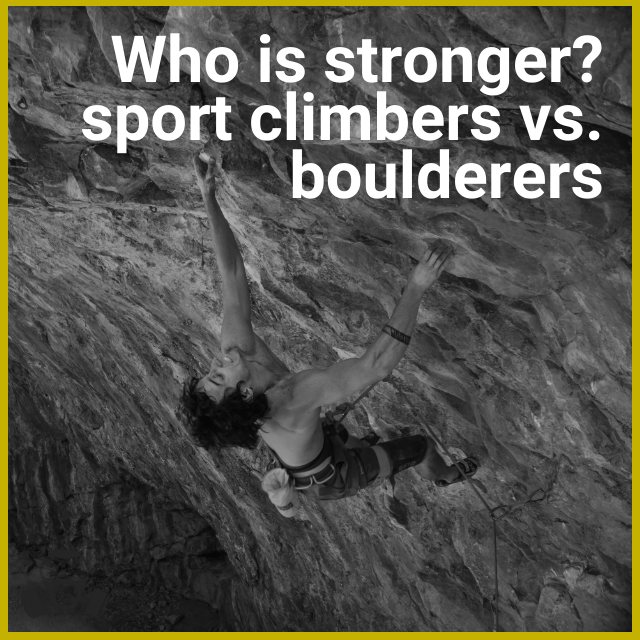

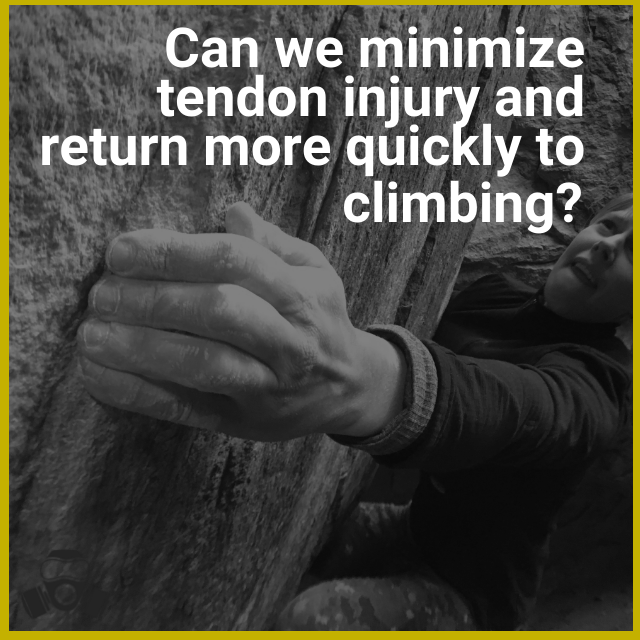




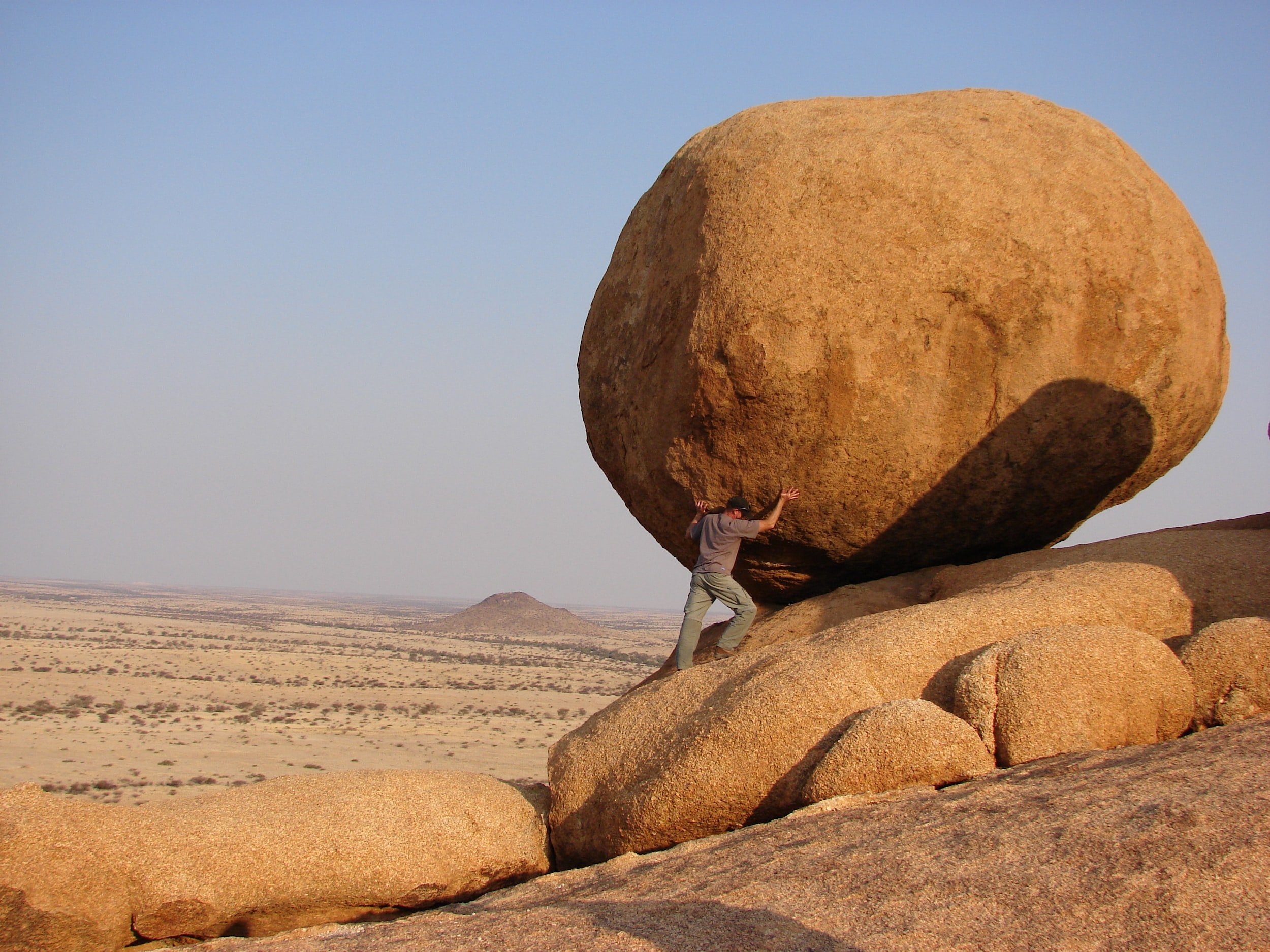




Explaining the science and calling out the misinterpretations.